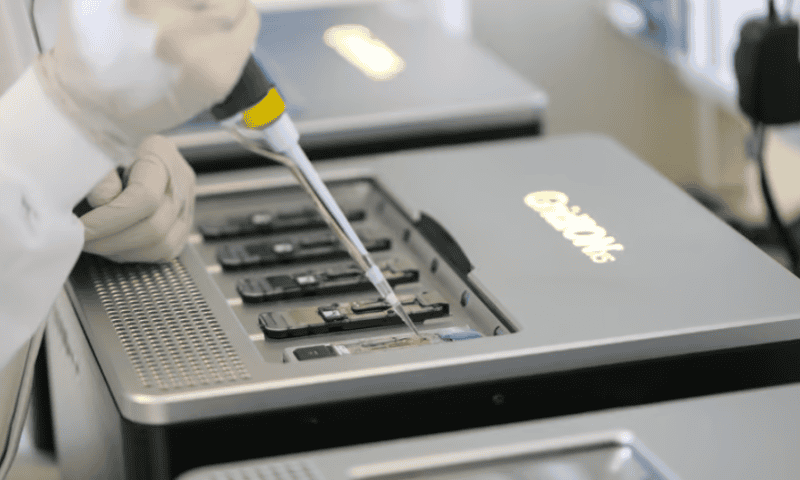Oxford Nanopore Technologies has signed a partnership with artificial intelligence developer SeqOne to support its next-generation sequencing approach in clinical diagnostic testing.
The goal will be to provide an end-to-end platform that applies extra-long nanopore sequencing reads to whole genomes—initially in order to help identify variants associated with rare diseases, before expanding the project’s scope into cancer testing.
The two companies are starting by connecting SeqOne’s germVar application with Oxford Nanopore’s EPI2ME bioinformatics analysis software, currently limited to research use only.
“Combining nanopore sequencing data with SeqOne’s AI-powered variant interpretation platform will support the time-sensitive workflows of our clinical customers, and we look forward to advancing their research and supporting future clinical use,” Oxford Nanopore CEO Gordon Sanghera, Ph.D., said in a statement.
At the same time, France-based SeqOne announced that its international research partnership program will adopt Oxford Nanopore’s adaptive sampling approach to preparation and gathering targeted sequencing data. The companies plan to develop the technique toward customizable methods for boosting diagnostic yield by having sequencers automatically focus on the genetic regions of interest linked to the task at hand.
“The partnership with Oxford Nanopore Technologies represents a significant step forward for our customers in integrating cutting-edge long-read sequencing into their healthcare diagnostics routine workflows and research efforts,” said SeqOne CEO Martin Dubuc. “This collaboration not only enhances our ability to offer comprehensive genomic analyses but also strengthens our commitment to transforming patient care through innovative, data-rich genomic insights.”
Last year, Oxford Nanopore also crossed the channel to work with French testmaker bioMérieux on bringing its DNA sequencing method to infectious disease diagnostics. That collaboration included employing bioMérieux’s EpiSeq CS software to track infection outbreaks in hospitals via the nanopore sequencing of whole bacterial genomes.
Prior to that, the U.K. company worked with PathoQuest to develop quality control tests for the biopharma industry to check the safety of biologics as well as cell and gene therapies, and partnered with Cyclomics on cancer-focused liquid biopsy tests.

